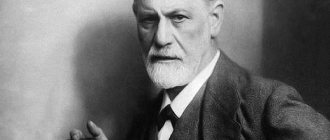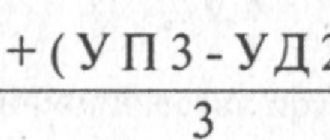Psychological concepts of law arose under the influence of the development of psychology as an independent discipline. At the turn of the 19th-20th centuries. Social scientists began to show increased interest in scientific problems. This was mainly due to the introduction of experimental research methods.
As a result, large scientific schools began to emerge, whose representatives differently understood and interpreted the characteristics of the human psyche. At that time, such movements as Freudianism, reflexology, behaviorism, etc. arose.
Of all the concepts that were formed at the end of the 19th century, the sociological theory of law and the psychological theory of law deserve special attention. Let's take a closer look at them.
L. I. Petrazhitsky
Lev Iosifovich Petrazhitsky was a prominent statesman, deputy of the State Duma of the 1st convocation from the Cadet Party. He developed an original theory of the origin of law. His thoughts are most fully presented in the work “The Theory of State and Law in Connection with the Theory of Morality.”
After the revolution of 1917, Petrazycki moved to Poland. There he began working at the University of Warsaw, heading the department of sociology. Representatives of the psychological theory of law, in addition to Lev Iosifovich, are G. Tarde and J. Fraser.
Psychological theory of law and its features
Briefly from Matuzov and Malko (if you want more details, see V.V. Lazarev “TGP” or the end of the question).
The psychological theory of law received its most logically completed form in the 20th century. Representatives: L.I. Petrazhitsky, A. Ross, I. Reisner and others.
The main ideas of this doctrine are:
1) the psyche of people is a factor that determines the development of society, including its morality, law, and state;
2) the concept and essence of law are derived not from the activities of the legislator, but primarily from psychological patterns - the legal emotions of people, which are imperative-attributive in nature, i.e. represent the experience of a feeling associated with the right to do something (attributive norm), and a feeling of obligation to do something (imperative norm);
3) all legal experiences are divided into two types of law - positive (coming from the state) and intuitive (personal, autonomous). The latter may not be related to the former. Intuitive law, in contrast to positive law, acts as a genuine regulator of people’s behavior and therefore should be considered as “real” law. Thus, a variety of experiences of intuitive law are considered to be worries about a card debt, children’s experiences of their responsibilities in the game, etc., which accordingly form “gambling law,” “children’s law,” etc.
Advantages:
· attention is paid to psychological aspects and their role in the process of functioning of law, along with economic, political, etc. Hence, laws cannot be issued without taking into account social psychology, they cannot be applied without taking into account the psychological nature of the individual;
· focuses on the role of legal consciousness in legal regulation and in the legal system of society.
Flaws:
· representatives of this theory exaggerated the role of psychological factors in the legal sphere to the detriment of others (socio-economic, political, cultural, etc.), on which the nature of law primarily depends;
· due to the fact that “genuine” (intuitive) law is practically divorced from the state and does not have a formally defined character, this approach does not have clear criteria for legal and illegal, legal and illegal.
–––––Additional––––––
The psychological theory of law arose in the middle of the 19th century, but reached its greatest influence and distribution at the beginning of the 20th century. Its most prominent representative in Russian legal science was L. Petrazhitsky (1867-1931).
The basis of the psychological theory was the denial of the objective reality of law and the assertion that law is a mental experience (feeling or emotion). This theory views law as the transference of a complex of mental experiences (emotional projection) into objective reality. “Nowadays the concept of law,” Petrazhitsky wrote, “comes from the denial of the real existence of what lawyers consider to really exist in the field of law (the body of legal norms, or objective law). Legal phenomena are a special kind of complex emotional-intellectual mental processes occurring in the field psyche of the individual."
Thus, law, in the light of this theory, turns into a psychological process or “emotional-intellectual experience” and is derived from the psyche. Based on this, it ceases to be an objective social phenomenon and exists only in the psyche of the subject as an individual right.
Representatives of psychological theory argue that it is possible to destroy legal codes, but law will remain in people’s heads, since only in them is the legal sense, or idea of law, rooted. Psychological theory seems to dissolve law in psychology. Law is not a social phenomenon, but a product of the individual’s psyche, therefore psychological theory denies objective law. For example, property in this understanding is not a phenomenon of the objective world, but a mental-emotional-intellectual phenomenon. It does not exist in the form of connections between people and things or between people, but solely in the psyche of the one who ascribes to himself or others the right of ownership.
Law, according to Petrazycki, is an “imperative-attributive emotion”, since it obliges one of the parties to perform some action, and gives the other party the authority to demand the completion of this action. Thus, a legal norm is considered as the result of a mental experience that has a two-sided imperative-attributive, or obligatory-claiming character. For example, the payment of agreed wages to a worker is the responsibility of the employer, and the worker can claim that the terms of the agreements are carried out accordingly.
Morality, unlike law, according to Petrazhitsky, has only an imperative character. “The specific nature of ethical phenomena - law and morality - is rooted in the area of emotion. Morality includes only those ethical experiences whose emotions are of a purely imperative nature; law includes only those emotions whose emotions are of an imperative-attributive nature.”
Speaking about ethical experiences that have only an imperative nature, Petrazhitsky points out that these experiences lack an attributive or demanding character, since one of the parties considers itself obliged to certain actions, but the other party cannot demand this, for example, a beggar cannot demand alms .
The psychological theory of law recognizes legal experiences, which are divided into experiences of positive law and experiences of intuitive law. The theory of law, according to the supporters of this theory, explores a legal phenomenon, the impact of law on the individual’s psyche, and current law is studied by the dogmatics of law, that is, by branch legal sciences.
The psychological theory of law believes that you cannot know reality as it is, but you can only know your own ideas about it. These ideas destroy the state's claims to a monopoly of lawmaking. The state, according to Petrazycki, is also a psychological phenomenon, and not a real fact.
The psychological theory of law remains one of the recognized theories of modern Western jurisprudence. The “Scandinavian school of law” is strongly influenced by this theory. Its representatives, following Petrazycki, view law as a complex of complex psychological experiences. Law is not considered as a set of norms that are mandatory within the scope of their competence. The binding and objective force of a legal norm is not a fact; it has no place in the real world of time and space. The main source of the power of law is social habits, instincts, and most importantly, the experience of a sense of respect that a person experiences for law as an expression of public will.
The opinion that a rule of law is devoid of objective meaning, since it is the content of subjective psychological experiences, opens up scope for arbitrariness in the interpretation of rules of law in the process of their application.
Emotions
They act as a legal source in Petrazycki’s psychological theory of law. Hence the name of the concept “emotional theory”. The author contrasted his ideas with other psychological theories of the origin of state and law, which were based on concepts such as “will”, “collective experiences in the mind of the individual”, etc. Emotions, according to the scientist, act as a “motor” (motivational) element of the human psyche . It is under their influence that people commit certain actions.
Basic Concepts
There are several basic concepts of the origin of power and law:
- Theological (or as it is also called - divine, religious). She controlled the consciousness of people in the Middle Ages. The essence of this theory was that everything arises according to the will of God. For this reason, power is considered sacred and unshakable. Its representatives are the executors of divine will on earth.
- Patriarchal. Every person is a collective being striving to create his own family. The state is the highest level when many families are united together under the leadership of one father, elder, leader.
- Negotiable. The state was formed by individuals who wanted to preserve what they had at the moment, not to fight with each other, but for this it was necessary to conclude an agreement, according to which everyone would give up benefits to achieve a common goal.
- Organic. The state is an integral organism, the cells of which are individual people. For the body to function properly, cells must unite and act together.
- Psychological. Based on people who want to obey and individuals who are inclined to control.
- Theory of violence. The state was formed thanks to one group of like-minded people who subjugated other people by force. To govern the state and saturate it, it is also necessary to use violence (extortions, executions).
There are other theories (hydraulic, diffuse, sports, incest), but they have not gained much popularity among researchers and society.
Classification of emotions
According to the psychological theory of state and law under consideration, emotions are divided into 2 types: moral and, in fact, legal. Petrazycki calls the first ones one-sided. He connected them with the individual’s awareness of his responsibility and duty. Moral norms were considered in the concept as internal imperatives.
Explaining his ideas, the author gives the following example. If a person gives alms out of a sense of duty, then he does not have the idea that someone in need of money has the right to demand it. The situation with legal emotions is different. The feeling of obligation (duty) is accompanied by the idea that other persons have authority (as well as vice versa).
Legal emotions, according to the psychological theory of law under study, are thus bilateral. The norms arising from them have an attributive-imperative (providing-binding) character.
Based on these considerations, Petrazycki formulates the following conclusion: a right is assigned to an individual, belonging to him (as his property) is the responsibility of another person.
Ethical Standards
In addition to the duties that an individual performs, the philosopher also took into account ethical standards. He also divided them into several types. The first is called “moral norms”. They are unilaterally obligatory, assert duties independent of others, and prescribe certain behavior to a person. Examples of such norms are the rules of Christian ethics, which describe duties towards others without claims to fulfillment on their part. The second type includes mandatory, demanding norms that establish roles for some members of society, requiring others to fulfill them. What is the duty of some is assumed by others as something due and assigned to them.
Scope of concept
The psychological theory of the emergence of law, developed by Petrazycki, had a number of shortcomings. The author considered all emotional experiences caused by ideas about mutual responsibilities and opportunities to be legal. He considered the rules of games, including children’s games, etiquette requirements, rules of politeness, and so on, to be norms.
In writings on the psychological theory of the origin of law, the author specifically stipulated that norms are formed not through the coordination of the emotions of subjects participating in social relations, but by each person individually. He argued that experiences that take place in the psyche of one individual and are not recognized by other people do not cease to be a right. In accordance with this, the author allowed entering into legal relations with inanimate objects, unreal subjects, and animals.
Normativist theory
The source of law is the will of the state, recorded in a normative act.
Its implementation is ensured by state coercive measures. The legal system must have a hierarchical structure in the form of a pyramid, the apex of which is the “fundamental rule”. Lower norms (agreements, court decisions) are legal only if they correspond to higher ones. The strengths of the theory are the normative approach, the hierarchy of the legal system, and the focus on ensuring the rule of law. But it exaggerates the influence of the state and does not consider the substantive part of the law (determining human rights and freedoms). Representatives of the normative theory: Kelsen, Novgorodtsev, Stammler .
Criticism
The psychological theory of the origin of law developed by the scientist was not accepted in the legal community. Ideas were also criticized in Russian literature. Legal scholars pointed out the absurdity of some provisions of the concept, without taking into account that the author poses a theoretical problem. The key goal of the scientist was to develop a universal formula of law.
As conceived by Petrazycki, it was supposed to cover various types of understanding of legal science known to history (including contracts with the devil). The psychological theory of law he developed was practically the first, in many ways immature, attempt to trace the formation of norms in the legal consciousness of an individual.
Evaluation of the theory
The emergence of the psychological theory of the origin of the state was, to a certain extent, a great breakthrough in legal science. This became possible only at the end of the 19th century, when psychology began to emerge as an independent branch of knowledge. The interest of social scientists in the problems of psychological science increased noticeably when experimental research methods prevailed in it and large schools began to emerge that diverged in their interpretation of the psyche. The ideas of these schools, adopted by sociologists and lawyers, marked the beginning of the formation of new directions in legal science.
It was rightly noted that the human psyche differs significantly from the psyche of animals. Man has a much more developed psyche. There is a sense of solidarity and a sense of collectivism in it. The merit of the supporters of this theory is the indication that psychological factors play an important role in the process of state formation. Thus, they tried to take a step away from the economic determinism that had completely taken possession of the minds of many. It is also true that the various interests of people (economic, political, cultural, everyday, etc.) are realized only through the psyche. All human actions pass through his psyche at the level of conditioned and unconditioned reflexes.
Orderliness of legal doctrine
The psychological theory of law, developed by Petrazycki, states that numerous legal norms that individuals create contradict each other. At the initial stages of historical development, they were ensured by arbitrariness - the protection of violated interests by the person himself or a group of close individuals.
Subsequently, repression and legal protection became orderly. A system of fixed norms arose in the form of customs and laws, and institutions of power appeared (courts, penal institutions, etc.). State power, implementing the functions of coercion, ensures “certainty of law.”
Patriarchal theory
Perhaps it is the most ancient.
Its adherents believe that the state is a natural continuation of the patriarchal family.
The power of the ruler of a country is similar to that of the head of a family, and its citizens are considered as members of a large family, of which the ruler is the head. The laws he issues must be obeyed by all subjects, just as all members of a patriarchal family must be obedient to its head. This is necessary to ensure stability and order in the state. It is known that Aristotle developed such views in his works.
Consequences of the development of legislation and customs
The formation of a regulatory framework, according to Petrazhitsky, cannot completely displace the individual’s legal experiences. The author argued that in modern states, in addition to the official legal doctrine, there are a large number of institutions of “intuitive law”. The scientist included the doctrines of the wealthy strata, the peasantry, the proletariat, the bourgeoisie, criminal organizations, and so on among them. The psychological theory of law in this sense approached the concept of legal pluralism.
At the same time, the legal doctrine of social classes and groups was interpreted individualistically. Petrazycki emphasized that the number of intuitive systems of law coincides with the number of individuals.
The essence and history of the development of the direction
The psychological concept of law shows that the state was not based on material values, as Marxist doctrine claimed. They appeared due to a number of mental qualities, experiences and emotions of people. Lev Petrazhitsky argued that individual social groups cannot exist for a long time without legal experiences. A state can be formed only due to a certain state of mind of different groups of individuals.
The essence of this theory is that the individual has a psychological need to be in an organized society, where his actions are limited by social boundaries. At the same time, he must feel and be active within the framework of collective interaction.
Supporters of the movement believe that society was formed thanks to the psychological development of man.
The researchers compared society to a biological organism in which individual parts are interconnected. There is a psychological connection between individuals that allows them to unite in groups to achieve a common goal. From this statement it can be understood that solidarity becomes the main character trait of a person, but identical individuals do not exist. According to physical qualities, there are strong and weak individuals. Depending on mental qualities, two groups of individuals are distinguished:
- Individuals who imitate authorities. They tend to be submissive to others. When executing orders from management, they become calm, believing that they are acting for the benefit of a just cause.
- People who want to control others. They do not know how to follow orders, they have their own opinions on many things, not recognizing the words of others. Their ability to subjugate those around them to their will will allow them to achieve leadership positions.
This theory arose in the mid-19th century, but it gained great popularity only at the beginning of the 20th century.
conclusions
Petrazycki did not make recommendations for the practical implementation of legal policy. The author saw his task as forming the starting principles of the new doctrine and justifying its necessity. He believed that the key position in state legal policy should be given not to coercive measures, but to the mechanisms of motivational and educational influence on the behavior of individuals.
Petrazycki's socio-political views are very close to the ideas of ethical socialism. This concept was also widespread in Russia at the turn of the 19th and 20th centuries.
Petrazycki's teaching was popular among the cadets. His ideas influenced the formation of the views of P. A. Sorokin, G. D. Gurvich and many other adherents of non-Marxist socialism. M. A. Reisner contributed to the rapprochement of psychological theory with Marxism.
The acceptance of Petrazycki's ideas by the followers of Marxism was facilitated by the fact that in the Constitution of 1918 and other acts socialism was characterized as a “stateless system.” It is worth saying that after the establishment of Stalinism and the formation of the concept of a socialist state, Reisner’s followers were criticized for promoting supra-class ethics in society.
Petrazycki's concept interested sociologists. Active research began on the problems of the structure and normative nature of legal consciousness.
Pros and cons of theories of the origin of the state
The founder of the theological theory of the origin of the state is Thomas Aquinas (years of life: 1225-1274).
The essence of the theory is that the state appears to be the result of God's will.
Note 1
The state is represented as a product of divine will, due to this, state power is eternal, unshakable and dependent for the most part on religious organizations and figures. Every person undertakes to obey his sovereign in everything. This theory affirms and defends the thesis “all power comes from God.”
The advantages of the theory are:
- The theory will explain the formation of a state together with a monoreligion;
- Theory makes it possible to establish social order;
- The theory reflects the objective decisions of that time, and specifically, the first states were theocratic.
Disadvantages - the theory is not scientific, since with its help it is impossible to prove or disprove the origin of the state.
Patriarchal theory of the origin of the state
Can not understand anything?
Try asking your teachers for help
The founder of the patriarchal theory of the origin of the state is Aristotle.
The essence of the theory is that the state is the product of an expanded family.
In accordance with this theory, people are represented as collective beings, striving for communication with each other, which leads to the emergence of a family. Later, the development and expansion of the family when people unite, as well as the increase in the number of families lead to the formation of statehood. The power of the ruler is a natural continuation of the paternal power, the “patriarch” in the family.
The advantages of the theory are that it:
- rightly draws attention to the mutual connection between the “state” and the “family”;
- helps establish social order as a result of submission to the “father’s will”;
- supports human beliefs in the inviolability of the world;
- reveals the role of the ruler of the state, which a person with extensive life experience can claim.
The disadvantages of this theory are that it does not reveal the process of the origin of the state in all particles of the world; cannot explain why wars occur if the state is a single family; does not explain the harshness of some laws.
Contract theory of the origin of the state
The founders of the contractual theory of the origin of the state are: Grotius, Hobbes, Locke, Rousseau and Radishchev.
The essence of the theory is that the state is considered a human association on the basis of a social contract, with the establishment of virgin lands for the achievement of common goods.
Social contract theories to some extent reflect historical facts.
The state sometimes arises as a result of people’s voluntary surrender of some part of their own rights to a body specially formed for their own protection and the protection of order in society, that is, as a result of the long-term natural-historical development of society.
The advantages of this theory seem to be that its authors took into account such human feelings as fear and the instinct of self-preservation. In addition, this theory is democratic in nature; proves that there was no religious basis in the essence of the state; relies on social practice.
The disadvantages of the theory are the following:
- Man is not subordinate to anyone, he does not subordinate anyone to himself;
- In order to consciously form a state, it is necessary to have at least some idea about it;
- The contract is the will of the people - which means it can be terminated;
- The agreement has no legal force, since it was formed before the state itself.
The theory of violence in the question of the origin of the state
The theory of violence is formed by two parts: the theory of external violence and the theory of internal violence.
The founders of the theory of external violence are Gumplowicz and Kautsky.
The essence of the theory is that the state is the result of the conquest of one tribe by another.
The advantage of the theory is that it is based on a variety of historical facts, the result of the conquest is reflected in it from all aspects of the life of the newly emerged society, and the state apparatus is made up of the conquerors.
Disadvantages of the theory: it does not explain the origin of the state in all regions of the world; in relation to the process of the origin of the state, conquests are of a secondary nature. In addition, history knows examples when it was not the conquest itself, but its threat that served to form a state. In addition to everything, besides the violent path of emergence, there is also a peaceful path.
The founder of the theory of internal violence is Dühring.
The essence of the theory is that the state appears as a result of violence of one part of society over another.
The advantages of this theory are the recognition that: people have different interests; violence in society occurs; the state uses violent methods in carrying out its functions.
The disadvantages of this theory are the statements that: defending interests can lead to the destruction of society and the state; people cannot be biologically equal; the state cannot always express the interests of society; If a state can be created by force, then it can also be destroyed.
Main points
The theory is based on the following ideas:
- Sociological jurisprudence, as well as natural law doctrine, goes beyond the law (positive norms), but not towards natural freedoms, but into the area of implementation, into the area of law enforcement practice. Thus, the right is embodied not in legislative provisions, but in the process of their implementation.
- Positive law is “dead”, “bookish”. It is contrasted with “law in action.” By it, supporters of the concept understood legal practice, actions, application of laws, law and order, etc.
- Law is the real behavior of subjects - legal entities and citizens.
- Judges and administrators are the main subjects of lawmaking. They fill laws with law.
Is there a unified theory?
Each of the theories considered was relevant in its time and corresponded to the level of development of civilization in a certain era. Many theories correctly reflect certain aspects of the emergence of law, but do not take into account other important circumstances. In different regions of the Earth, the emergence of law had its own characteristics. On many issues concerning its origin, scientists have not come to a common opinion. Therefore, there is no single theory of the emergence of law today. But in any case, there is reason to believe that law is a product of the development of human civilization.
Specifics of theory development
The conceptual formation of the sociological approach occurs when the norms aimed at regulating free competition cease to satisfy the majority of society.
Thus, in the conditions of the development of capitalist relations, the courts, under the guise of interpretation, actually established new legislative norms. As a result, a thesis arose, the meaning of which is the need to search for law not in norms, but directly in life.
After the revolution of 1917, against the backdrop of criticism of previous laws, the sociological concept was actively promoted. For example, P. I. Stuchka called new connections in society law itself. Soon, however, this approach had to be abandoned, since the positive law of the USSR began to take shape, the provisions of which were mandatory.
Natural law theory
Its adherents contrast laws established by the state with natural law.
The concept of natural law implies that every person from the moment of birth is endowed with certain inalienable rights.
This is, first of all, the right to life, freedom, social justice, equality, and ownership of private property. Such rights belong to a person by nature, and the state or other social structures have no right to take them away from anyone. Natural rights are placed above laws.
This theory has much in common with theological one. It carries the ideas of social justice and humanism. Natural law theory does not consider questions related to the origin of law, since it is assumed that people have always had certain rights from birth.
These views were shared by B. Spinoza, J.J. Rousseau, J. Locke. Since the 17th century. Many revolutionary actions took place under slogans proclaiming the need to build new states in which natural human rights would be a priority.
Controversial issues
When using a sociological approach, there is a risk of blurring the very concept of “law”. If we consider the implementation of norms as it, then clear signs of unlawful and lawful behavior are lost, since the implementation of provisions can be both legal and illegal.
According to the concept, the main subjects of rule-making are administrators and judges. This approach creates favorable conditions for abuse of power by these individuals.
The sociological approach does not have a strong normative basis. In this regard, legal disputes are resolved mainly in favor of politically and economically powerful entities.
Theological theory
One of the first ideas based on thoughts about divine providence during the formation of the state. Based on a similar idea, people assumed that statehood was given to them by the will of a higher being, regulating law as a divine gift. The church in such states was recognized as dominant over the ordinary authorities; the ruler, at the beginning of his journey in this incarnation, necessarily received the approval of the religious authorities.
The following are considered supporters of theological statehood: F. Aquinas, F. Lebuff, D. Euwe.
Positive aspects of the concept
Within the framework of sociological theory, the processes occurring in the field of legal regulation are taken into account. They are studied using specific methods of sociological knowledge.
The concept considers public relations to be a priority. In other words, content takes precedence over legal form.
Of course, the sociological approach is of great practical importance for researchers and legislators. To form a correct idea of the legal doctrine and assess the effectiveness of norms, it is necessary to study the provisions in life, with their direct implementation.











